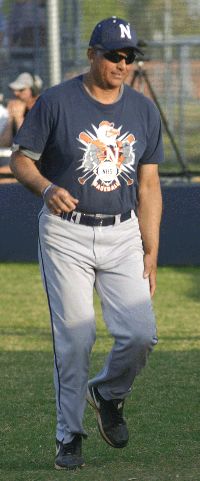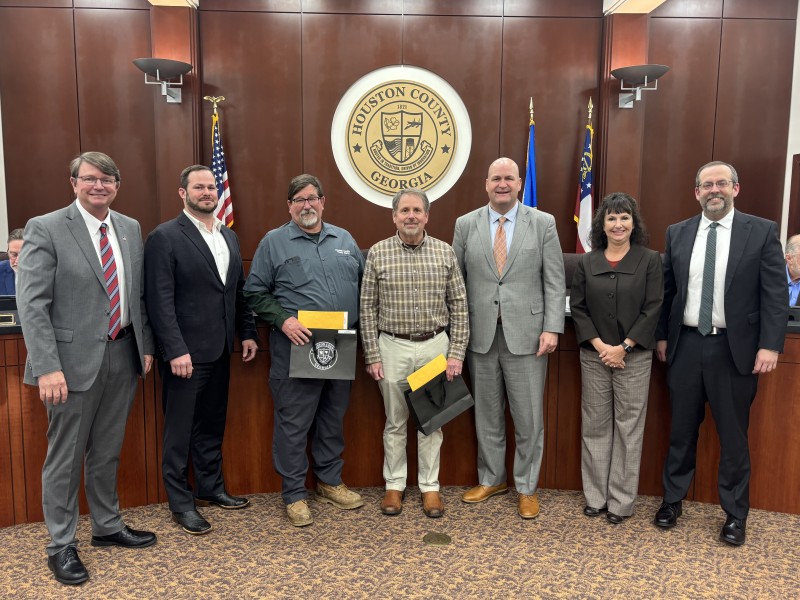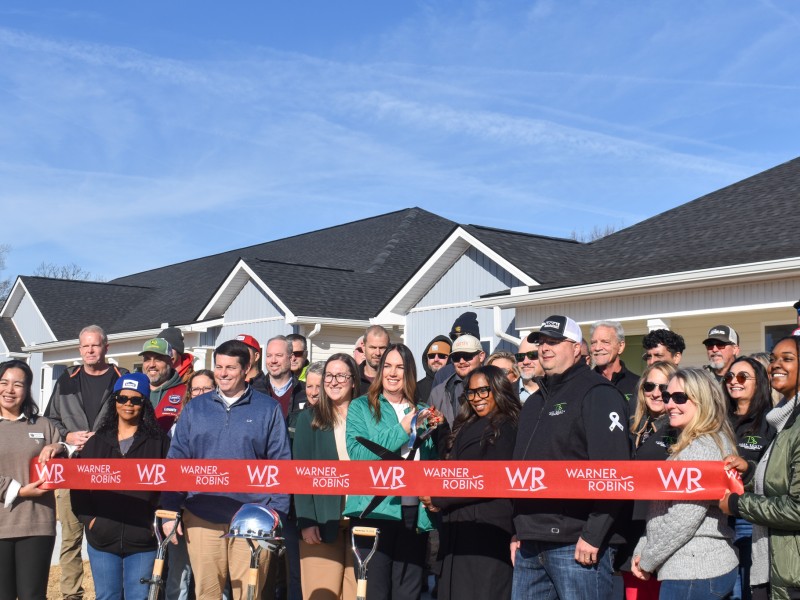Monserratts find home in USA

Dad Pablo speaks on pro career, Venezuela
mbrown@sunmulti.com
It’s hard to imagine how one would be glad to be raising his family away from his home country.
But when a major natural disaster hit the town where Pablo Monserratt resided with his wife and twin children in his native Venezuela in 1999, he discovered a chance to return to the United States, a place where he toiled in minor league baseball for eight years. Considering the political shadow cast over this South American nation during the presidency of Hugo Chavez, Monserratt is more than happy to have raised those children in North America.
Even with Chavez’ death a month ago, Monserratt has no desires to return to his native land where he developed into a professional prospect. He’s had a chance to watch his son, Jesus, become a starting infielder for the Northside High baseball Eagles as a community assistant coach for the team. Plus, Monserratt grabbed at the opportunity to further pass on his knowledge of the game to up-and-coming players in Warner Robins.
Monserratt’s pro career actually spanned 12 years beginning in 1981 at the age of 18. After eight years in the Seattle Mariners farm system, he went overseas to play one year in Italy. Monserratt’s remaining years of playing took place in Venezuela, and soon afterwards he and wife Mara welcomed twins Jesus and Nicole into the world.
“I know Omar Vizquel, Edgar Martinez,” said Monserratt about his former roommates from rookie league to Class A. “I played also with Ozzie Guillen and Andres Galarraga. I played in my country with Tony Armas. I played with all of these guys when baseball was baseball. You have to play good to be in there.”
Monserratt received $400 when he signed that first contract with the Mariners. He played both first base and left field, and his forte was hitting, a .310 type average with some power. Maybe it was a misfortune, but he was Galarraga’s back-up in Venezuela, which made playing time hard to get.
The Monserratt twins were born in 1995. It was in 1999 that a major natural disaster occurred in the Vargas state on Venezuela’s northern coast. Torrential rains and flash floods led to an estimated 50,000 casualties, the destruction of more than 8,000 residents and caused almost $1.8 billion (U.S.) in damages.
“I lived close to the ocean,” said Monserratt. “Ninety percent of the town I lived in disappeared. I lost everything. The only thing we had left were the clothes we had on the day of the tragedy.
“We decided to start all over again here in the United States. I was living here so many years and knew a little bit about it. I told my wife if we needed to start from zero, that’s the best way to do it.”
Monserratt spoke candidly about Chavez and how he ran the nation. It is reported that, after the Vargas tragedy, Chavez refused the aid from U.S. Navy ships that had been dispatched. Those ships turned around midway through the journey.
“Our president was not doing the right thing,” said Monserratt. “It was very dangerous to stay. There was no real democracy. People were killed right and left. I don’t think it was the right place to grow my kids. I’m not going to put my kids in danger when I have the possibility to go to another place and live better.”
The Monserratts first moved to Florida and then to Georgia when the twins were starting middle school. Unlike what some might think, Pablo did not push Jesus towards baseball. Before the boy was born, the father was thinking for him a career as a commercial pilot.
“I always wanted to be a commercial pilot,” said Monserratt. “But I don’t think it was God’s purpose.”
It was actually Mara who first signed Jesus up to play youth baseball unbeknownst to the father. He said he came home from working in Argentina, and Mara told him they were going to see Jesus … in a ball game.
“He never played with toys,” said Monserratt. “The only toy he had was a little plastic car you drive with your feet. Everything else was bat, baseball and glove.
Monserratt said Jesus had good coaching up to age 8, so he didn’t inject any of own teaching at that time.
“He was coming from college,” said Monserratt. “He was pushing the kids showing them how to play, the technique. When (Jesus) was 9, I started working with him seriously. Every day we went to the park catching ground balls and doing drills. That’s why I think he knows so much about baseball.”
It’s passing on the basics of baseball that motivates Monserratt to give hitting lessons and form his own teams.
“I see players the age of Jesus or 14 or 15, and some of these kids don’t know the basics of baseball,” he said. “Kids at that age are supposed to know a little bit about the game.
“I’m trying to get the little ones, because you work better with the little ones. The big ones are tough to work with. It’s tough for coaches to change their minds on how to play the game.”
Monserratt does have fun assisting with the Northside varsity team. He will offer to continue to do so even when Jesus graduates.
“In professional baseball, they teach you how to play the game,” said Monserratt. “They teach you also how to take care of yourself … how to live out of the field. Now there is the opportunity to teach others what I know. It made me happy.”
Back in Venezuela, the election for a new president to complete Chavez’ six-year term that began in January. In Monserratt’s view, things will not change, especially if the vice-president, Nicolas Maduro, wins.
“I don’t think we will be back home,” he said. “My kids weren’t born in this country, but they belong to this country. I don’t want to take them there and have somebody kill them.”
That’s not just an assumption, for Monserratt can relate a story of a friend and fellow Venezuelan who resides in Miami. He said that man’s family went back after 40 years away to attend a wedding just last year. The intent was to surprise those in the wedding, but one member of this visiting family was killed.
“Things are not going to change, not for now,” he said. “I believe the power countries need to get together and take over. I don’t see in the future my country is going to get in better position as it was before. I think it’s going to get worse.”
Opposing Maduro is a state governor, Henrique Capriles, who lost last year’s election to Chavez. Monserratt said him winning would bring some hope because Maduro “never went to school. He was a bus driver.”
Monserratt said Venezuela is a beautiful country with nice people, but it has a government that doesn’t offer much of a future for its youth.
HHJ News
Before you go...
Thanks for reading The Houston Home Journal — we hope this article added to your day.
For over 150 years, Houston Home Journal has been the newspaper of record for Perry, Warner Robins and Centerville. We're excited to expand our online news coverage, while maintaining our twice-weekly print newspaper.
If you like what you see, please consider becoming a member of The Houston Home Journal. We're all in this together, working for a better Warner Robins, Perry and Centerville, and we appreciate and need your support.
Please join the readers like you who help make community journalism possible by joining The Houston Home Journal. Thank you.
- Brieanna Smith, Houston Home Journal managing editor



